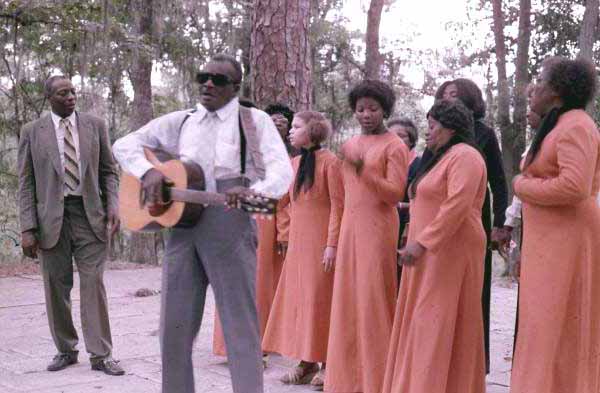 |
| Treasure by Falashad |
Here are some musings from Matthew 6:19-24. For Where your treasure is there your heart will be also!
“[This] is the principle on which the regulation of our life entirely depends, and the object to which all our senses are directed. If honor is reckoned the supreme good, the minds of men must be wholly occupied with ambition. If money, covetousness will immediately predominate. If pleasure, it will be impossible to prevent men from sinking into brutal indulgence. We have all a natural desire to pursue happiness; and the consequence is that false imaginations carry us away in every direction. But if we were honestly and firmly convinced that our happiness is in heaven, it would be easy for us to trample upon the world, to despise earthly blessings, and to rise towards heaven.” John Calvin
Whatever has your heart has your focus or interest and whatever has your heart and focus is your functional master. What you treasure with your heart captures your affections and what you treasure you spend time considering and contemplating or setting your mind on, and what has your affections and your abiding interest or pursuit is what winds up governing your will or your choices – i.e. controlling you or mastering you.
Jesus uses three word pictures to describe how this works. He first speaks of a treasure. What you treasure or place supreme value upon is where your heart is fixed. Your heart is the working combination of what you think/believe and what you want or desire. Hebrew 4:12.
What captures your heart shapes and controls the focus of your life. This is the next picture that Jesus gives. The eye is the lamp of the body. Here Jesus is describing the heart too but with a slightly different nuance. They eye is like the heart a figure of speech. By it Jesus is teaching that whatever you treasure is that with which you are supremely preoccupied.
He is speaking of matters of preoccupation. You may be occupied with the stuff of this life but you must not allow yourself to be preoccupied.
You may be engaged with the stuff of this life and to some degree be busy with the matters of this life (you cannot help but be) but you are not to be preoccupied with them. Preoccupy is defined in the dictionary in terms of that which dominates or engrosses the mind of (a person) to the exclusion of other thoughts. You are engrossed mentally with whatever preoccupies you. This carries the further negative notion that thus you are distracted from what is truly important.
Jesus speaks of your focus – your eye is the lamp of your body. This is another way of saying where your treasure is there your heart is also. You tend to focus on what you value or treasure. A healthy eye is an eye that is focused on the goodness, greatness, grace of the Living God. God is the supreme object of vision and the consequence is your whole body or life is full of light. A healthy eye is when you set your mind on the things above. You become preoccupied with Christ and his kingdom. This gives you the only proper grid from which to view this earthly life. It is this grid that enables you to really manage the affairs and issues of this life so that they do not consume you with either covetousness or anxiety.
If your eye is bad – if your supreme focus is on the creature (on yourself – this is the grid by which you see reality) then what light you have within you is really darkness. The implication here is that you are deceived. You may think your vision is good and your life is good but if your eye is not fixed on God who is light then the very light you have within is darkness and how great is that darkness.
What you treasure is that on which you fix your vision (with what you are preoccupied, what you set your mind upon) and such becomes your true master. You can have more than one employer but you can only have one master – one to whom you give ultimate allegiance. Again, no one forces you to treasure what you treasure or to set your vision on what you set your vision. You treasure what you find appealing and delightful. Coveting your treasures or worrying about holding them or keeping them is what winds up controlling your life. So that which you treasure and on which you fix the eyes of your heart ends up mastering you. This is a law of reality. It is as fixed as the law of gravity.
There is no such thing as ultimate freedom (or ultimate neutrality) where you the creature are a law and rule unto yourself. As Bob Dylan sings, “You got to serve somebody.” So Jesus teaches that when it comes to ultimate treasures and visions and masters there can be only one over your life. Note how he emphasizes worship here. It is under the idea of serving. You cannot serve two masters. You cannot worship two treasures for either you will hate the one and love the other or you will be devoted to one and despise the other. You cannot serve God and money – materialism, property, what money can buy and achieve for you.
Of course there is more one can serve than money. Whatever competes for first place over you heart, competes for that place that belongs to the Triune God. So if money is not what competes for God’s preeminence in your heart what does? It can be anything. John Calvin gives these words that help me at least understand what Jesus is saying about the two masters. I often feel that my obedience to God is hindered by a pull to other ‘gods.” The issue is whether on not you are fighting this pull.
“It is no doubt, true, that believers themselves are never so perfectly devoted to obedience to God, as not to be withdrawn from it by the sinful desires of the flesh. But as they groan under this wretched bondage, and are dissatisfied with themselves, and give nothing more than an unwilling and reluctant service to the flesh, they are not said to serve two masters: for their desires and exertions are approved by the Lord, as if they rendered to him perfect obedience. But this passage reproves the hypocrisy of those who flatter themselves in their vices, as if they could reconcile light and darkness.”
It is never a matter of one's heart being empty, one's inner vision being cloudy or one's life being free from an outside ruler. It really has to do with what your heart treasures, where your vision is cast and who or what is your master. Jesus calls you to turn to him so that your affections, mind and will might become captured by the Kingdom of God and that means that you are delighting in God's gracious and true (rightful) rule over your life now and forever!






